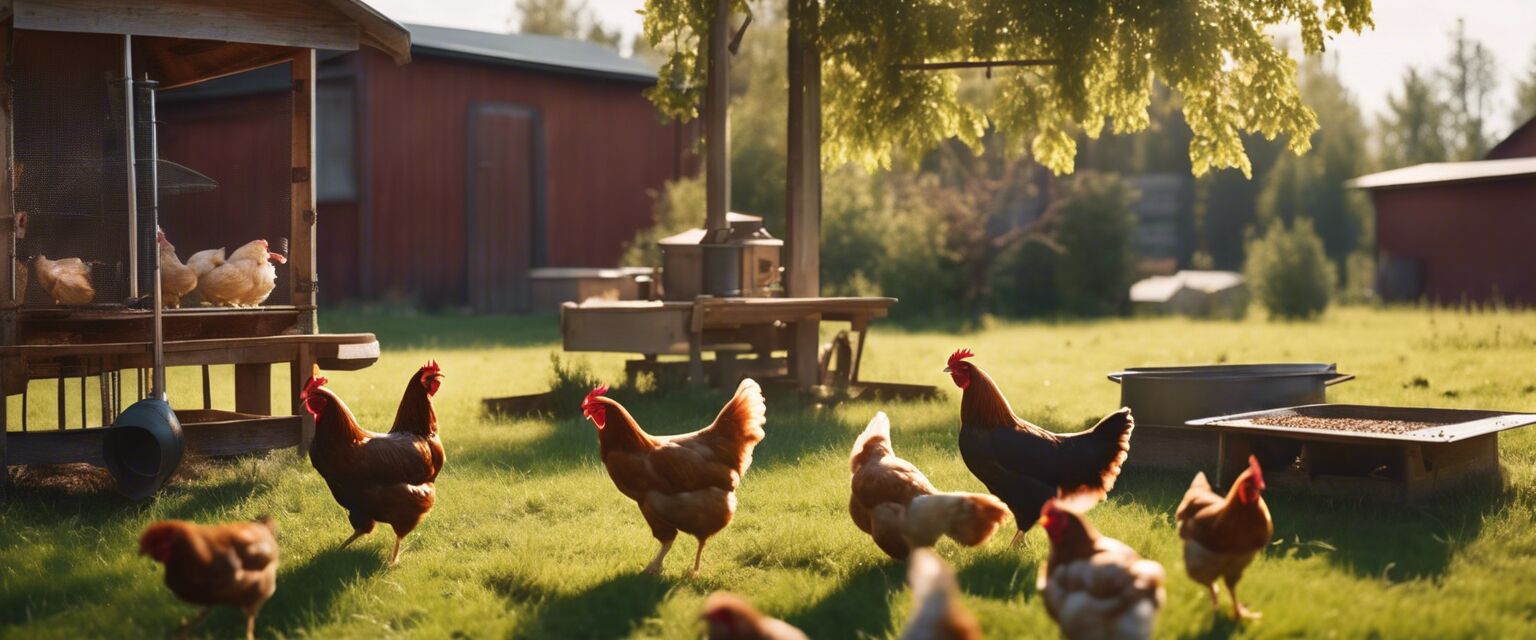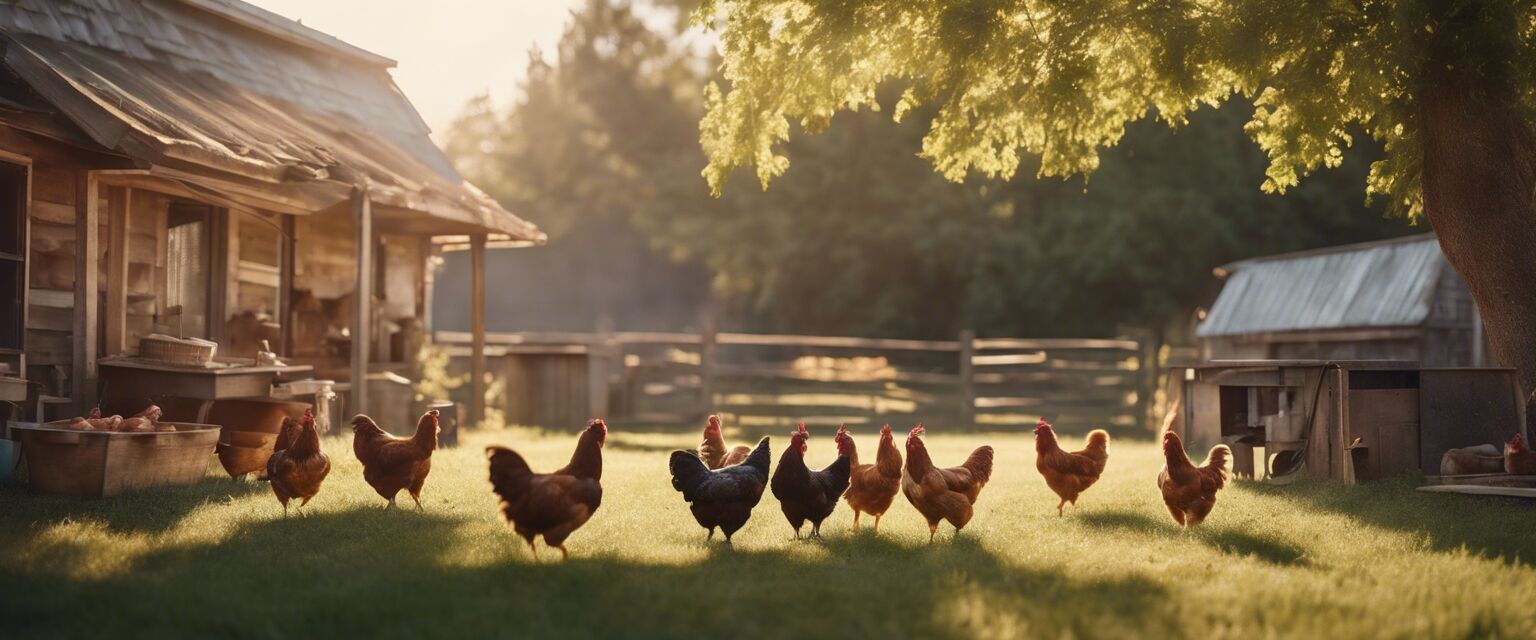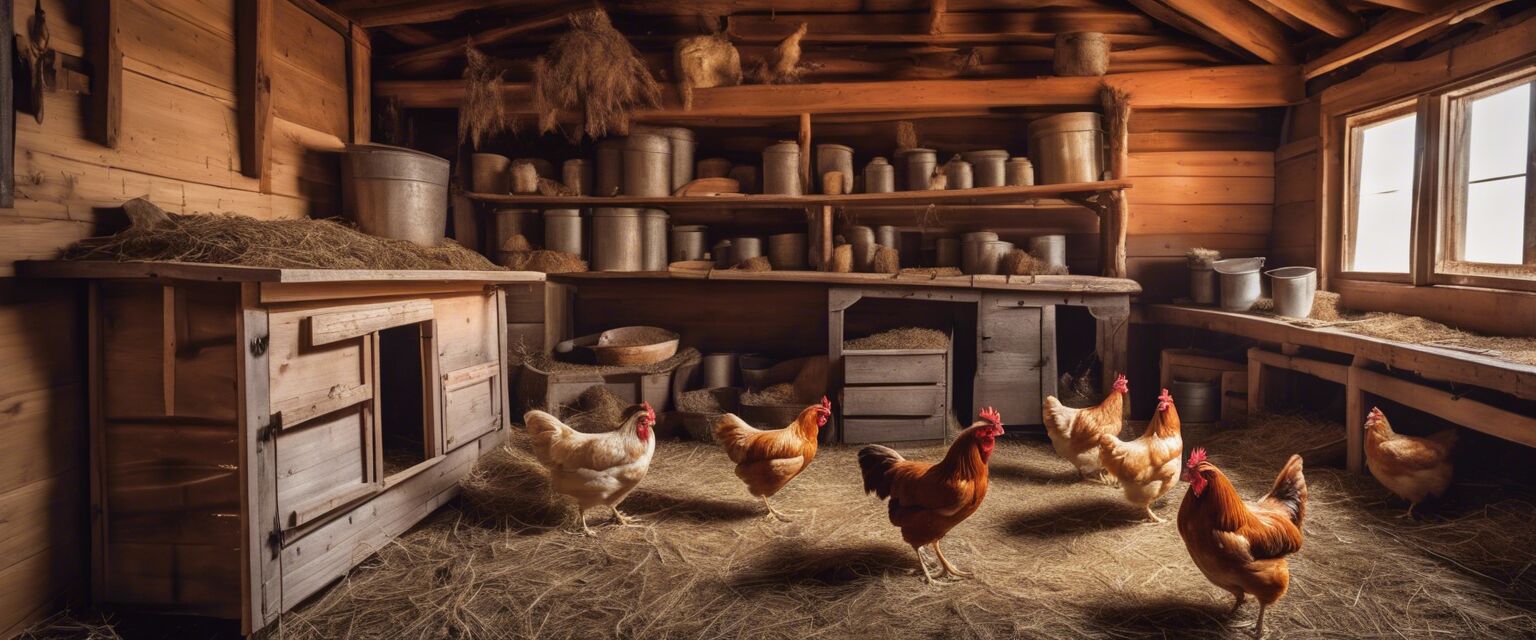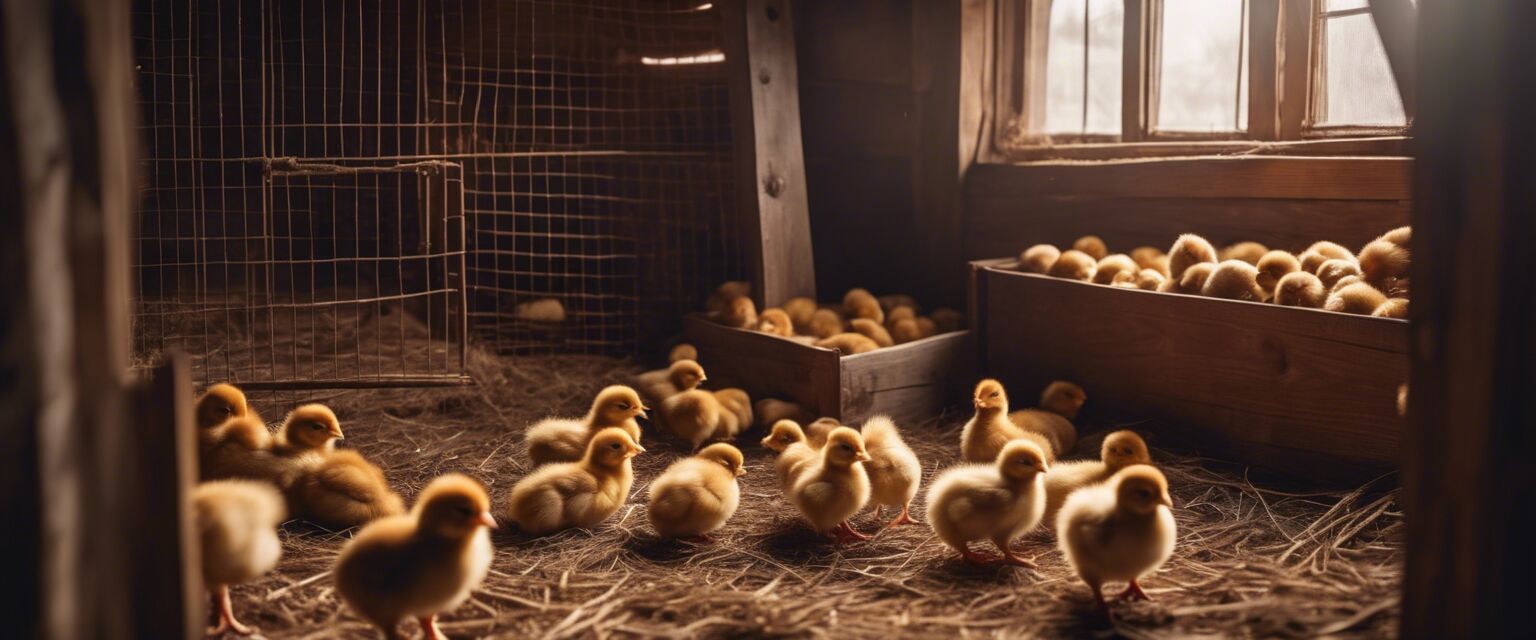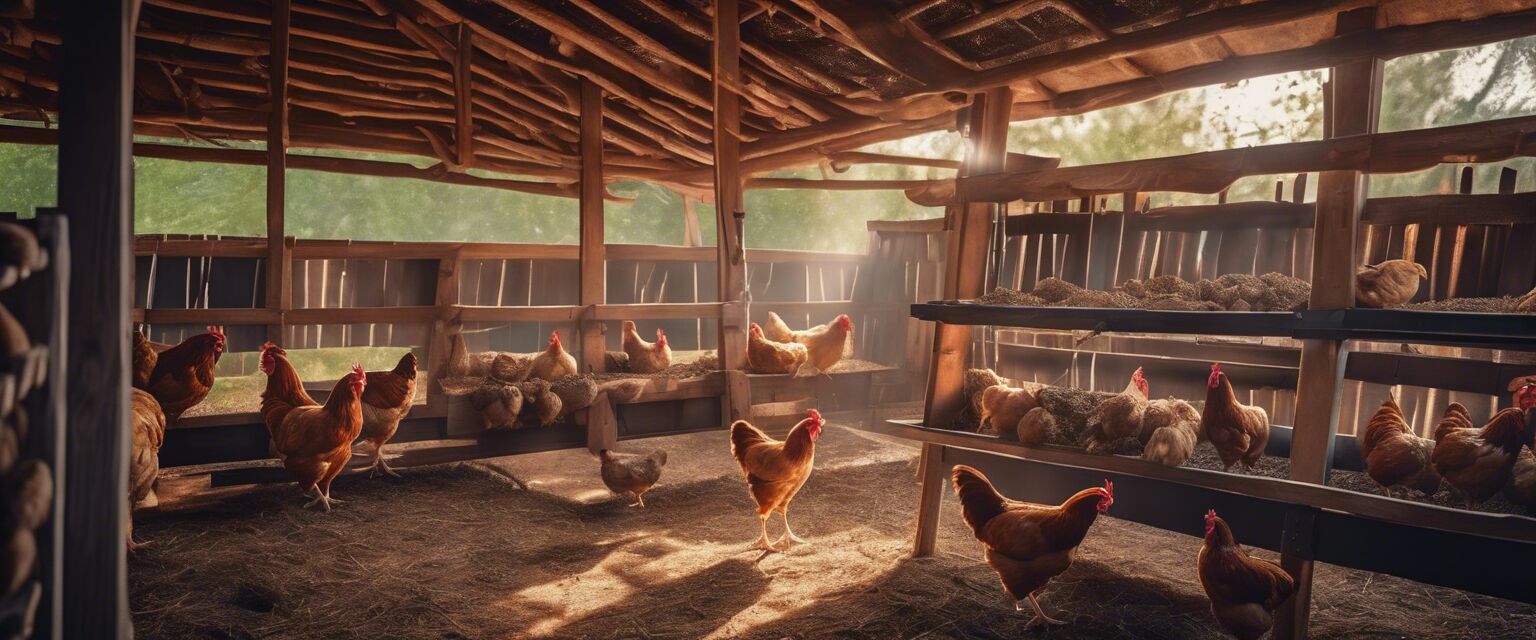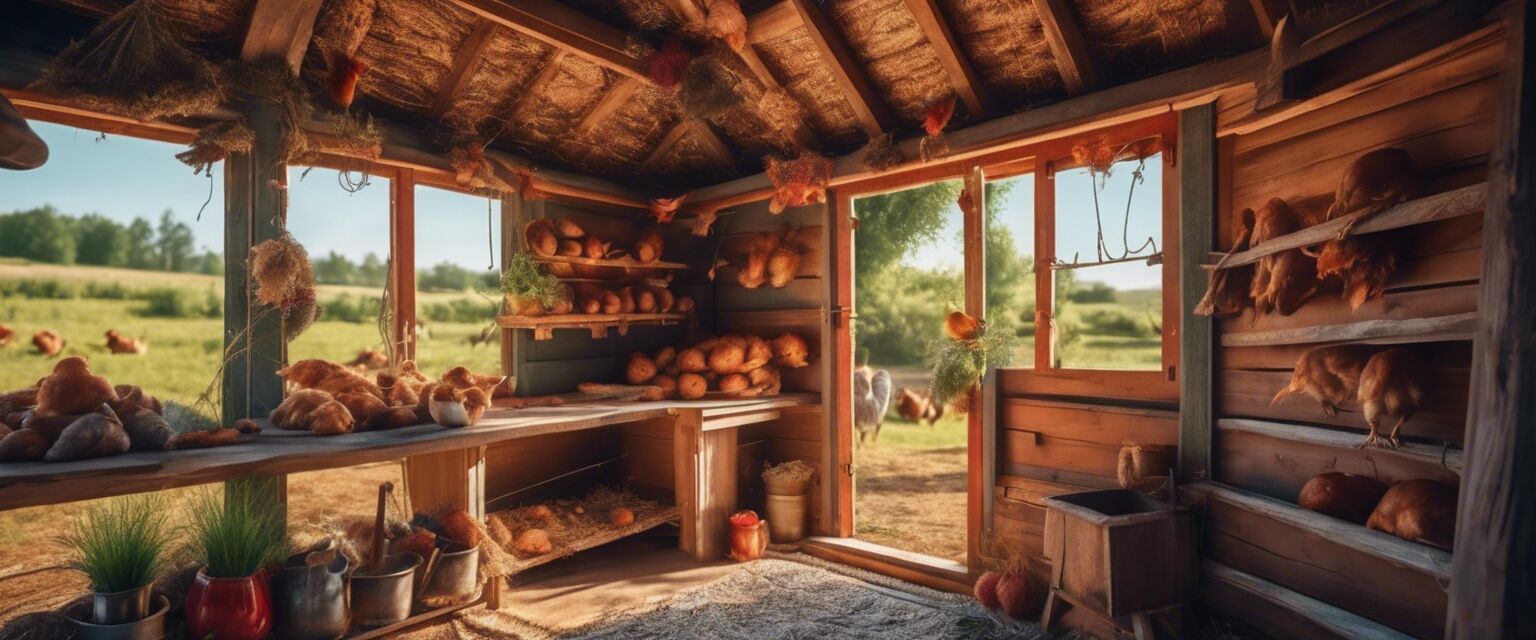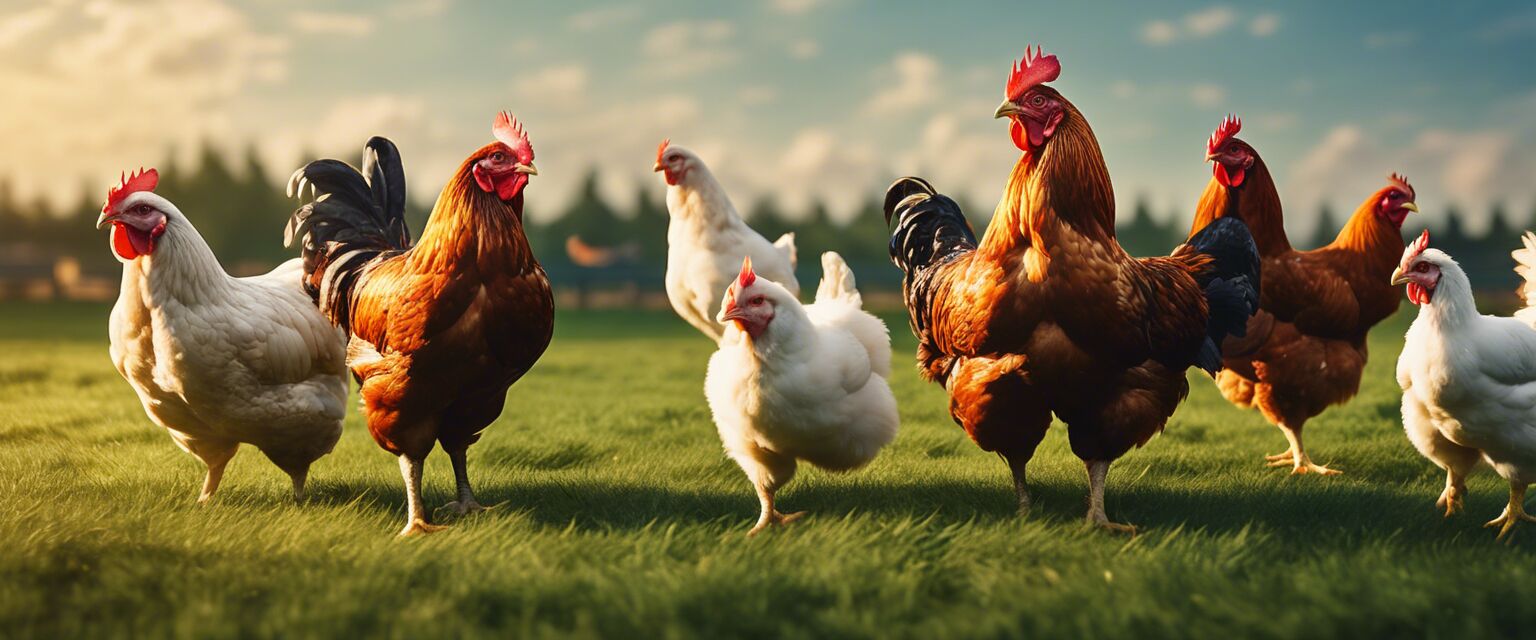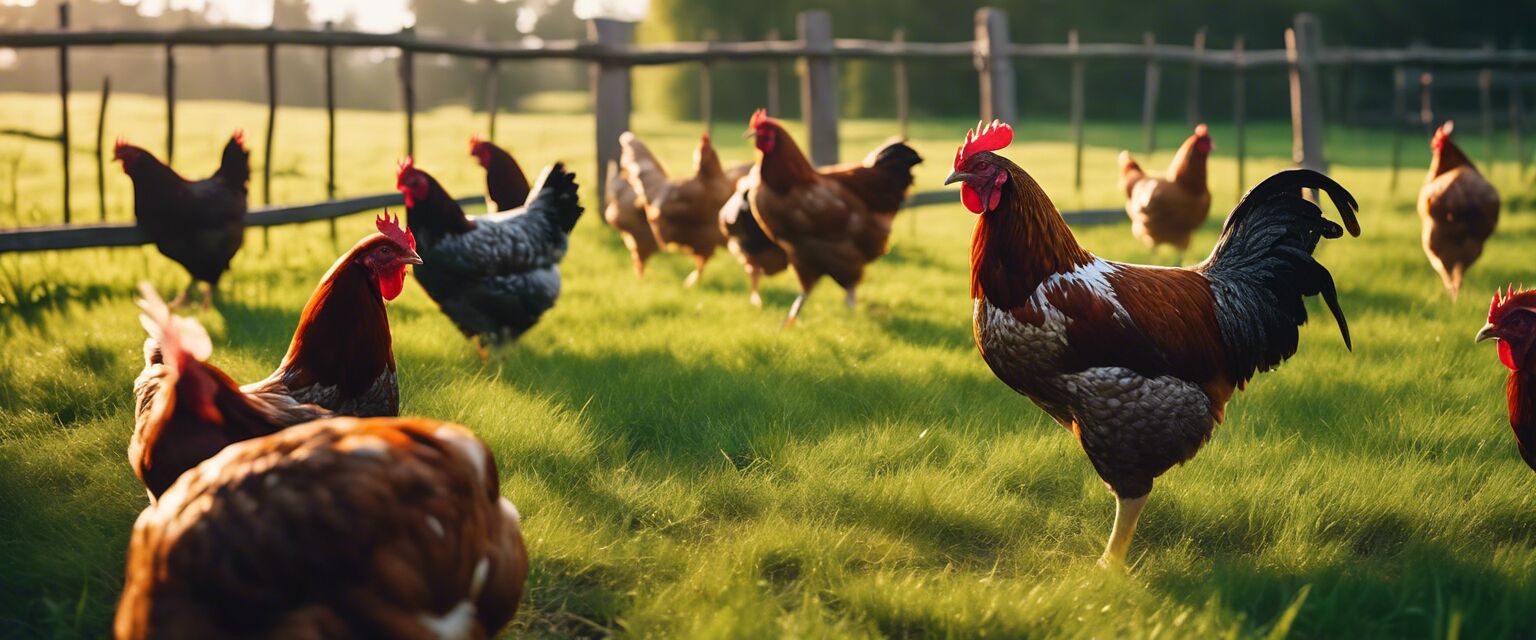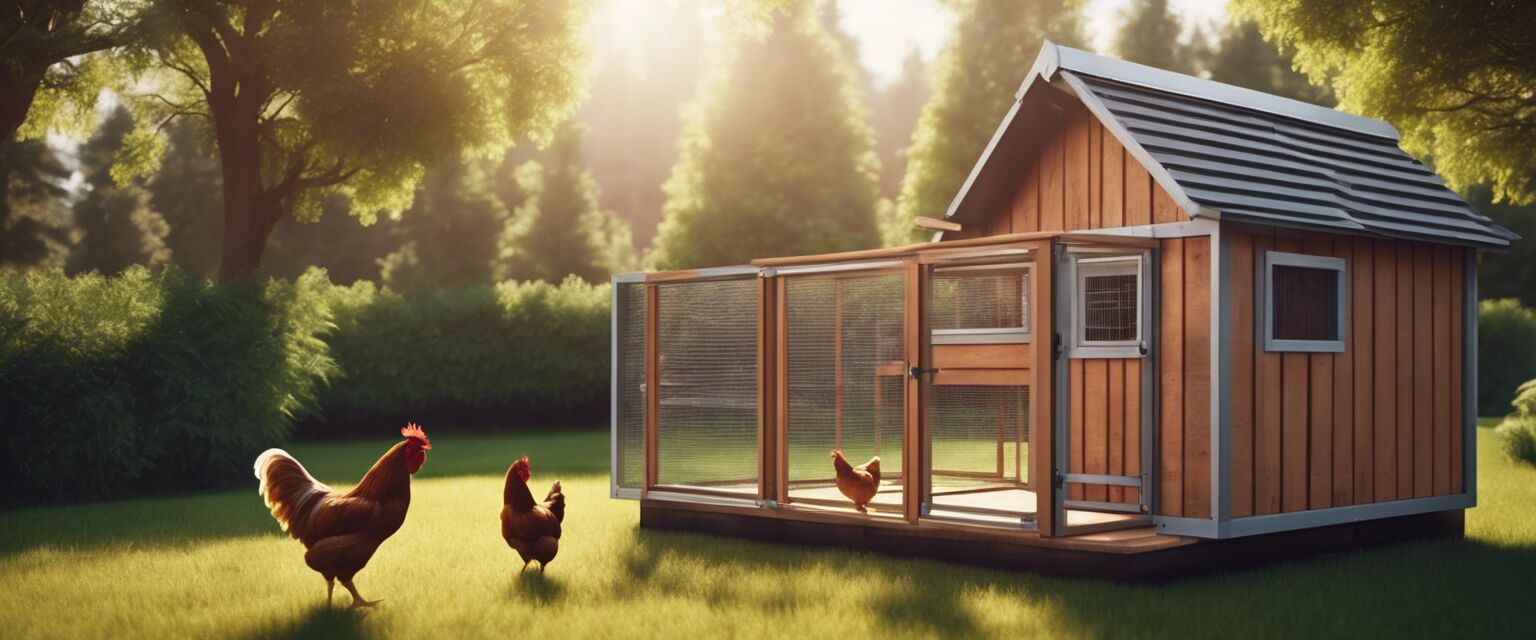
Chicken Coops
Key Takeaways
- Understanding the different types of chicken coops is essential for proper chicken care.
- Choosing the right materials can enhance the durability and comfort of your coop.
- Consider your flock size to determine the appropriate coop size.
- Proper ventilation and insulation are key for your chickens' health.
- Regular maintenance will prolong the life of your chicken coop.
Building or purchasing a chicken coop is an essential step in raising chickens. This article provides a comprehensive guide, outlining the various types of chicken coops available, as well as essential buying tips to ensure a safe and comfortable home for your feathered friends.
Types of chicken coops
| Type | Features | Pros | Cons |
|---|---|---|---|
| Traditional Coop | Wooden structure with nesting boxes | Durable, customizable | Can be expensive if professionally built |
| Portable Coop | Lightweight, movable structure | Easier to clean, allows fresh grazing | Less secure against predators |
| Garden Coop | Blends with landscaping | Aesthetic appeal, great for small yards | Limited space for chickens |
| Commercial Coop | Large structures designed for many birds | High space efficiency, allows for easy management | High initial investment |
Factors to consider when buying a chicken coop
- Size: Determine the number of chickens you will keep.
- Material: Look for durable materials like treated wood or metal.
- Ventilation: Ensure proper airflow to keep the coop comfortable.
- Predator proofing: Look for features that keep your chickens safe.
- Ease of cleaning: Choose designs that allow for simple maintenance.
DIY Chicken Coop Ideas
If you're considering building your own chicken coop, take a look at some DIY ideas that can inspire your project:
- Using reclaimed wood can add character and be cost-effective.
- A small shed can be converted into a chicken coop with minimal effort.
- Creating a coop with wheels allows for easy relocation.
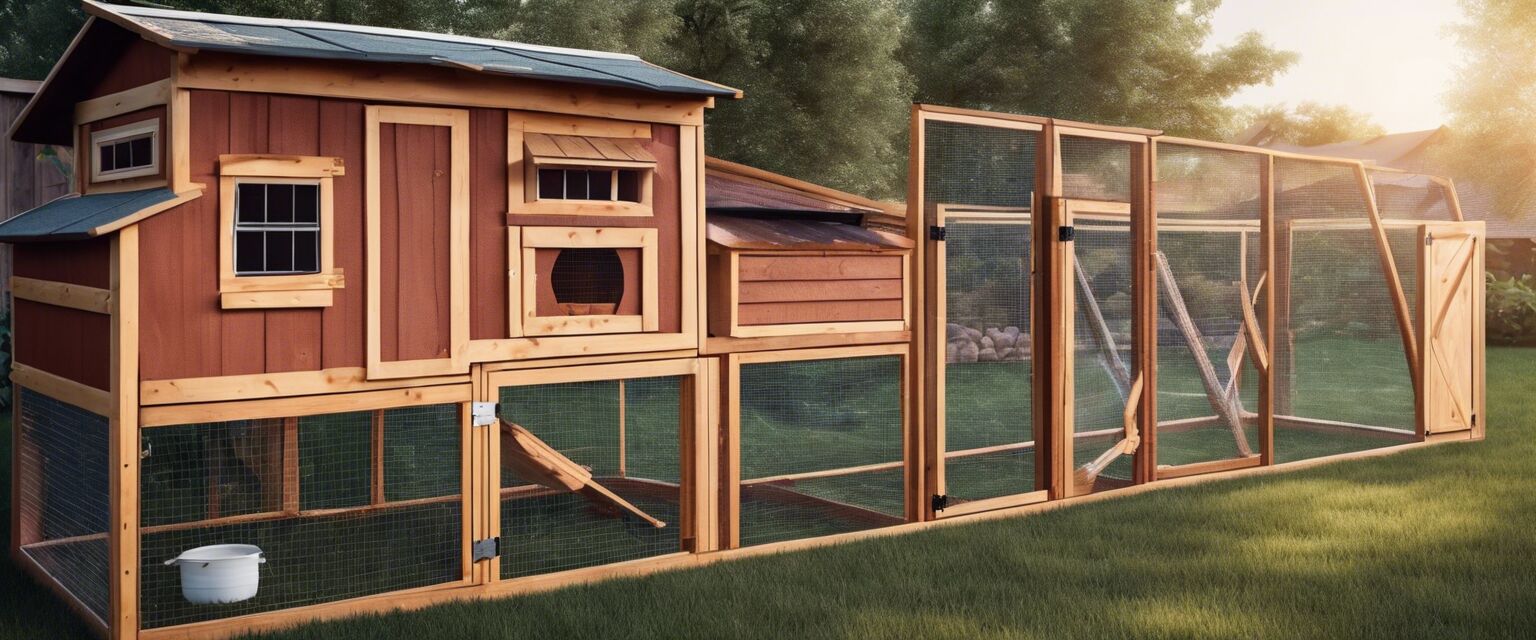
Choosing the right location for your coop
Location is crucial for a chicken coop to provide comfort and security. Here are some tips on selecting the right spot:
- Avoid areas prone to flooding or strong winds.
- Ensure ample sunlight for heating but provide shaded areas to cool down.
- Keep the coop away from busy areas of your yard to reduce stress on your chickens.
Essential chicken coop accessories
Enhance the functionality of your chicken coop with these essential accessories:
| Accessory | Purpose | Benefits |
|---|---|---|
| Nesting Boxes | Provide a safe space for hens to lay eggs. | Encourages egg laying and can reduce egg damage. |
| Chicken Feeders | Dispense food for chickens. | Reduces waste and keeps food clean. |
| Chicken Waterers | Provide fresh drinking water. | Ensures chickens stay hydrated, especially in summer. |
| Heat Lamps | Supply warmth in colder months. | Helps maintain a comfortable temperature for chickens. |
Maintenance tips for your chicken coop
Regular maintenance is essential for a healthy chicken coop. Here are some tips to keep in mind:
- Clean the coop weekly to prevent disease.
- Check for structural damage monthly and make repairs as needed.
- Inspect for pests regularly and take appropriate action.
Pros
- Provides a safe shelter for chickens.
- Can be designed to fit any backyard.
- Improves productivity by creating a comfortable environment.
Cons
- Requires initial investment of time and money.
- Need for regular maintenance can be demanding.
- Risk of predators if not properly secured.
Conclusion
Investing in a chicken coop is a rewarding venture that offers a safe home for your chickens and enhances their productivity. By understanding the different types of coops, considering essential features, and maintaining them regularly, you can ensure a happy and healthy environment for your flock. For more information on related topics, explore our pages on chicken coops, chicken feeders, and chicken waterers.
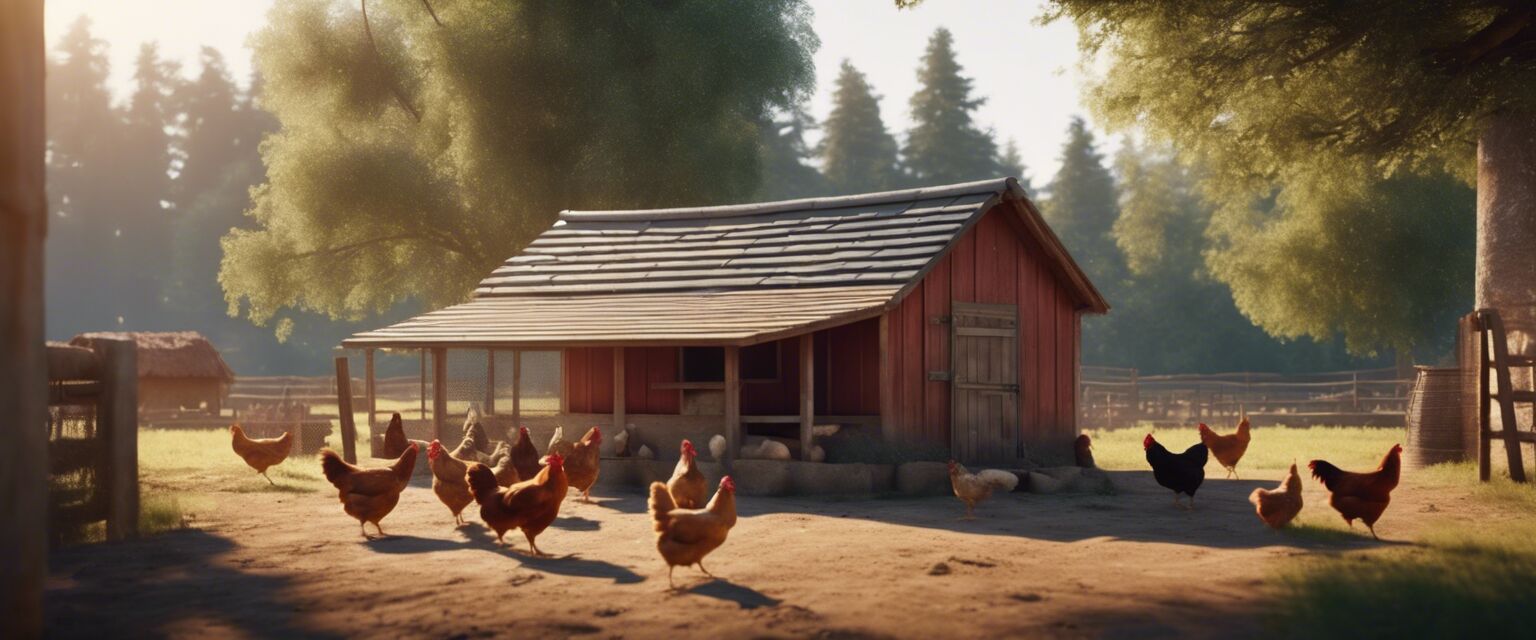
FAQs about chicken coops
Here are some common questions and concerns about chicken coops:
- How big should a chicken coop be? Each chicken needs about 4 square feet for inside the coop and 10 square feet for an outdoor run.
- What type of bedding is best? Use straw, wood shavings, or hay for bedding to absorb moisture and provide comfort.
- Can I keep chickens in my backyard? It depends on local regulations; check with your municipality.
Additional Resources
For further reading about keeping chickens, check our guides on chicken feed, coop accessories, and nesting boxes.
